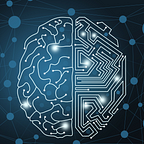Major ethical challenges facing introduction of artificial intelligence in healthcare.
Introduction
There has been much excitement in the healthcare industry as it relates to the adaption of artificial intelligence (AI). Will AI help improve on the delivery of medical services to patients? Although the field can be relatively young, there has been significant progress in assisting early diagnosis, disease prediction, reinforcement of various management in the healthcare setting, error reduction in delivering medical services, and other benefits being realized in this field. Regardless of the potential benefits, various ethical challenges have been raised in the medical field by experts regarding AI use.
Ethical Challenges
Ensuring transparency
According to research by Park et al. (2019), one of the significant ethical challenges of AI use in healthcare will be ensuring transparency. This is transparency in data training, such as how the AI will collect, organize, and process the data without compromising the professional and the patients’ trust. There has to be an ethical standard ensured in the healthcare setting regarding transparency. Reading data or even interpreting among other processes in delivering medical services to the patient are essential in healthcare but it creates a dilemma. Both the patients’ trust and data accuracy are essential and should be considered by artificial intelligence in their operations. It thus becomes a major challenge. The patient has to trust that the AI adaptation is for their benefits such as reducing diagnosis error, but there will take time since the technology is still young.
Privacy and security
Privacy and security is another ethical challenge facing the implementation of AI in healthcare. Patient’s data has to be protected so as to ensure that the healthcare sector complies with confidentiality’s ethical standards. By accessing this data, the AI technology considering it, it needs to adhere to privacy and security. This is by ensuring patient data within the health care system is available while at the same time protected against outside parties. The need for ensuring privacy and security is to prevent tampering and with patient’s data considering that hackers have progressed mitigating security measures. Thus, healthcare organizations are under pressure to ensure a breach of privacy and security ethical standards.
Justice
Ensuring fairness and justice in the utilization of AI in healthcare is yet another nightmare. The system needs to treat all patients equally and fairly while at the same time, eliminate any ethical challenges that may exist in clinical practices or research. Regardless, considering that AI can be able to access clinical information in vast amount, it can improve on fairness and inclusivity but to fully achieve this, progressive innovation in this field is needed.
Enhancing reliability
The last ethical challenge is ensuring the reliability of the AI in healthcare as it may influence decision making by various parties in this sector. For instance, intelligent clinical monitoring, a time-sensitive application, makes data crucial in decision making on how the doctors will administer medical services. Major situations that may compromise AI reliability may have safety concerns and thus achieve exactly the opposite of what it was intended to do. Thus promoting the reliability of these systems is a significant concern of how it will be achieved.
Conclusion
Considering the current state of AI in healthcare sector, there are still a number of ethical challenges to be solved so as to fully and positively adapt Artificial Intelligence. Regardless, there is a lot of potential in this field that will help healthcare organizations improve their healthcare delivery processes. Further research into this subject will help reduce the outstanding challenges and enhance success.
References
Park, S., Kim, Y., Lee, J., Yoo, S., & Kim, C. (2019). Ethical challenges regarding artificial intelligence in medicine from the perspective of scientific editing and peer review. Science Editing, 6(2), 91–98. DOI: 10.6087/kcse.164
McCarthy, M. (2019). Artificial Intelligence in Health: Ethical Considerations for Research and Practice. Retrieved 17 February 2021, from https://www.himss.org/resources/artificial-intelligence-health-ethical-considerations-research-and-practice
Currie, G., Hawk, K., & Rohren, E. (2020). Ethical principles for the application of artificial intelligence (AI) in nuclear medicine. European Journal Of Nuclear Medicine And Molecular Imaging, 47(4), 748–752. doi: 10.1007/s00259–020–04678–1
